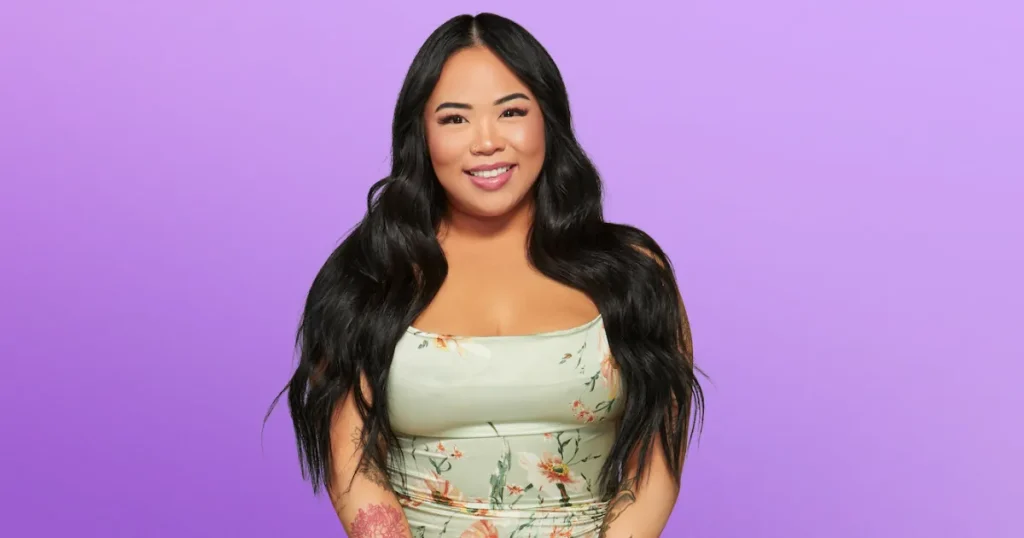Anna Yuan’s Brave Response to Body Shaming in the Wake of “Love Is Blind”
In a heartfelt response to a wave of hurtful comments about her appearance, “Love Is Blind” season 9 star Anna Yuan took to Instagram to remind followers of a simple truth: she is human. The 28-year-old hairstylist, who became a subject of discussion after her appearance on the Netflix dating show, found herself facing an onslaught of body-shaming messages from viewers calling her “chubby” and suggesting she wouldn’t find love due to her appearance. “I have struggled with my weight since I was a little girl,” Anna shared candidly in her Instagram Stories. “For the first time in my life, I am proud of how healthy I am. I’m not a character.” Her vulnerable response highlighted the disconnect between reality television and the real people who participate in these shows – individuals with feelings, histories, and insecurities just like anyone else. Anna, who has dedicated her professional life to helping other women feel beautiful through her work as a hairstylist, found herself in the ironic position of defending her own worthiness in a space that was supposed to be about finding love beyond physical appearance.
The Denver-based contestant’s experience on “Love Is Blind” ended earlier than many viewers expected when she made the difficult decision to withdraw from the experiment. Despite forming promising connections with fellow participants Patrick Suzuki and Blake Anderson in the pods, Anna ultimately chose to leave the show – a decision that sent ripples through the cast, particularly affecting Patrick who had been anticipating their upcoming date. Anna later explained that her withdrawal stemmed from the vulnerability she began experiencing during filming. “I started seeing myself being pretty vulnerable, and it scared me a little bit because this is an intimate part of my brain. These are very sensitive topics for me,” she told Tudum in a post-show interview. Her concerns extended beyond just personal vulnerability on camera – she was acutely aware that “this is going to be broadcast for people,” adding another layer of complexity to her emotional exposure. This reality of modern dating shows – that intimate moments aren’t just shared with potential partners but with millions of viewers – became increasingly overwhelming for Anna as filming progressed.
Cultural and family considerations also played a significant role in Anna’s decision to leave the experiment. As the daughter of Chinese immigrants, Anna carried additional concerns about how her parents might perceive her participation in such an unconventional dating format. “With my parents being immigrants and having a language barrier, I’ve always naturally been their helper,” she explained. The communication challenges became apparent when she attempted to explain the premise of the show to her parents, who responded with genuine concern: “Are you being kidnapped?” This touching anecdote reveals the complex cultural negotiations many first-generation Americans must navigate, especially when participating in mainstream American entertainment that might seem foreign or even alarming to immigrant parents. Anna’s story highlights how reality television contestants often carry unseen responsibilities and considerations that viewers might never consider when judging their on-screen decisions or appearances.
The emotional toll of Anna’s departure was significant, as she described being “a wreck” with eyes “almost swollen shut from crying” after making her decision. Adding another layer to her story, Anna revealed that while producers gave her the option to explain her decision to Patrick during their planned date, she declined because she “didn’t want to be filmed anymore” – a candid admission about the overwhelming nature of constant camera presence during emotionally charged moments. Despite the difficult ending to her time on the show, Anna expressed no regrets about her decision to leave. “I don’t think I regret it because I don’t think the connections were strong enough to have a successful marriage from there,” she reflected in her interview with Tudum. This perspective offers insight into the realistic assessment Anna made about her relationships in the pods, weighing the emotional cost of continuing against the likelihood of finding lasting love through the experiment.
Anna’s participation in “Love Is Blind” and her subsequent experience with body shaming illustrate the double-edged sword of reality television visibility. The show’s premise – to create connections without seeing one another – theoretically removes physical appearance from the equation, yet paradoxically, once participants appear on screen, viewers often focus intensely on their looks. The irony isn’t lost that on a show designed to transcend physical judgment, Anna found herself subjected to precisely that from the viewing public. Her response to the criticism demonstrates remarkable resilience and self-awareness: “If you think you know me, you actually don’t,” she reminded followers who flooded her DMs with unsolicited comments. This statement cuts to the heart of reality television’s fundamental illusion – that edited footage can truly capture the essence of a complex human being. Anna’s experience reminds us of the gap between reality show participants as they appear on screen and the multifaceted individuals they actually are.
Following Anna’s departure from the show, the ripple effects continued among other contestants, with Blake eventually leaving the show single after exploring connections with other participants, while Patrick proposed to Kacie McIntosh, though their engagement ended after their face-to-face meeting. As “Love Is Blind” season 9 continues to stream on Netflix with new episodes releasing weekly, Anna’s story stands as a powerful reminder of the human cost of entertainment. Her willingness to speak out against body shaming while acknowledging her lifelong journey with body image issues transforms her from simply a reality show contestant into an advocate for compassion and understanding. “Be kind. Love you all anyway,” she concluded in her Instagram message – a graceful response to unkindness that reveals more about her character than any edited television footage could capture. In a media landscape that often treats reality television participants as disposable characters rather than real people, Anna’s stance serves as an important call for viewers to remember the humans behind the entertainment they consume.


